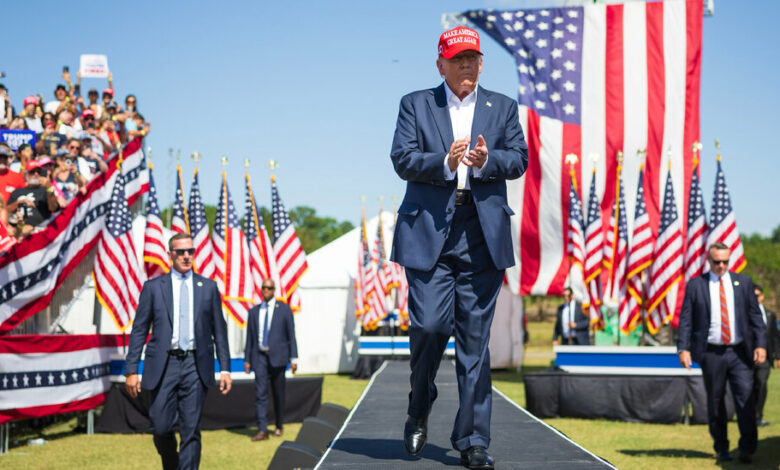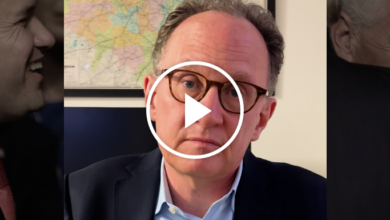Memo reveals Trump’s plan to shrink the size of the GOP platform

Donald J. Trump’s top advisers plan to drastically scale back and simplify the Republican Party’s official platform, according to a memo to the party’s platform committee seen by The New York Times.
The memo — signed by Chris LaCivita and Susie Wiles, the former president’s two top advisers — outlined their efforts to trim the platform “to ensure that our policy commitments to the American people are clear, concise, and easy to digest.” It dismissed previous platforms as unnecessarily “textbook length” documents that had been shaped by “special interest influences” and left the party and its candidate vulnerable to attack from Democrats.
“Publicating an unnecessarily verbose treatise will only add fuel to our opponent’s fire of disinformation and misrepresentation to voters,” the memo said. “It is with that recognition that we will present a streamlined platform consistent with President Trump’s principled and popular vision for America’s future.”
The memo was sent Thursday ahead of the GOP’s meeting next month in Milwaukee, where it will first vote on its platform and then hold its national convention to select a presidential candidate.
The decision to sharply reduce the size of the platform – the most recent decision taken by the party in 2016 – covered almost 60 pages — is likely to spark skirmishes among some conservatives and party activists who have battled for years over the document’s language. One person close to the process, who was granted anonymity to discuss the planning, said the new platform could be half the size of 2016’s.
Anti-abortion activists in particular have been bracing for a fight in case the Trump team tries to water down or eliminate long-standing language to make Mr. Trump appear more moderate on the issue.
Hoping to keep any disagreements out of public view, the party plans to have the platform committee meet behind closed doors in Milwaukee a week before the broader convention. That would represent a break with decades of precedent. The party’s platform committee meetings have been televised since 1984, according to C-SPAN archives.
In completing the process, Mr. LaCivita and Ms. Wiles argue that they will reject “any special interest influence aimed at diverting government policy from our clear and distinct objectives.”
Mr. Trump had considered downsizing the platform in 2020 but eventually abandoned the idea.
The memo makes clear that the Trump team sees the Republican National Committee platform almost exclusively as a tool to draw a contrast with President Biden in the 2024 race, rather than as a way to advance goals for the party longer term.
“If we don’t clarify for voters the binary choice between the leadership of President Trump and the Republicans versus that of Joe Biden and the Democrats, no one will do it for us,” they wrote, calling the platform “a contract with the American voter that makes clear what we can and will deliver under an administration of President Trump.”
Newt Gingrich, the Republican former speaker of the House of Representatives who called his own legislative agenda the “Contract with America,” was among those who pushed for a streamlined platform that he said “should be a Trump document.”
He said voters across the country “should be able to look at this and say, ‘Wow, this is a good thing.’”
That’s not how many conservative activists see the document. They see it as an ambitious vision for the coming decades.
“The platform isn’t just about 2024,” said Kristan Hawkins, president of Students for Life of America, an anti-abortion group. “It’s about 2034 and 2044. It’s a vision statement for where the party should go.”
In 2020, Trump sidestepped a platform fight altogether, opting instead to simply re-adopt his 2016 platform in light of the coronavirus pandemic. The 2016 document covered an incredibly broad range of issues. For example, it thanked the president of Egypt for protecting the rights of Coptic Christians and supported legislation to protect Americans “from an electromagnetic pulse.”
Maggie Haberman contributed to the reporting.




